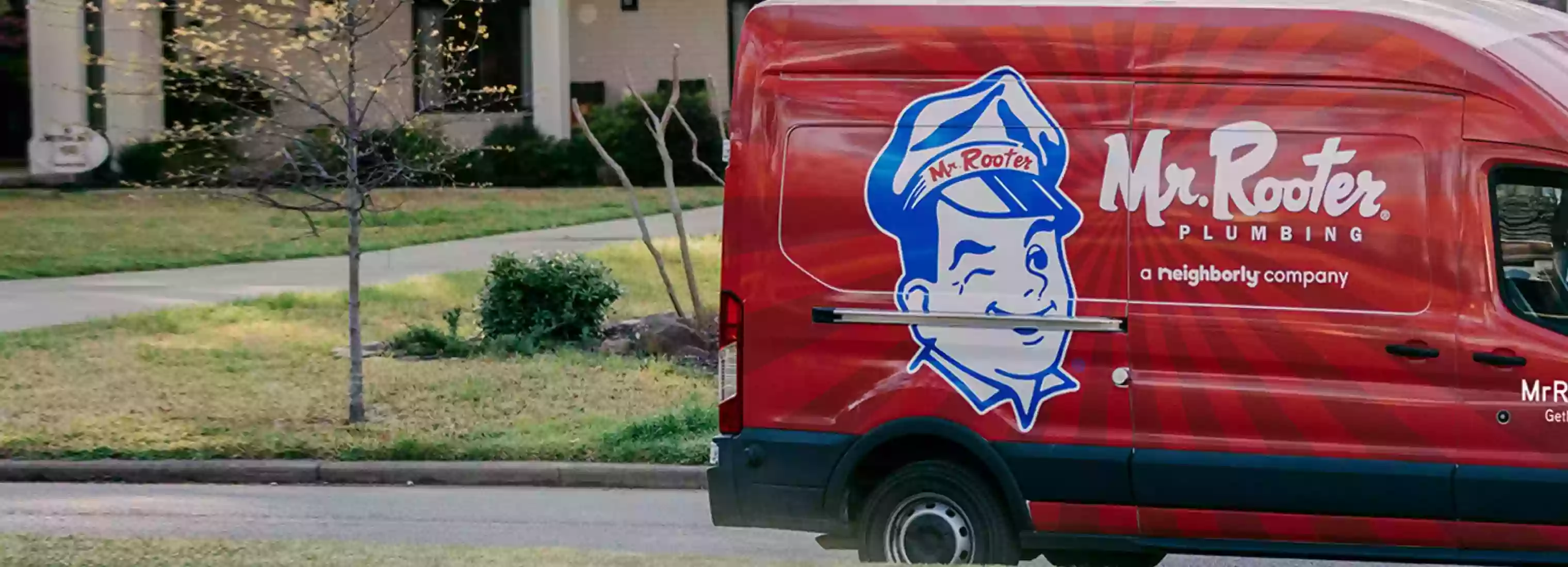Why My Shower Drain Smells Like Sewage
You rely on the shower as a part of your daily routine. So, when the smell of sewage in the shower permeates your sanction of cleanliness, it can ruin your bathing experience and indoor comfort.
So why does your shower smell like sewage? Fortunately, a smelly shower is easy to identify and fix than you might think, and this article is here to enlighten you on the possible causes of a smelly shower, explaining the following topics:
- The causes of clogs in the shower
- Unclogging a shower drain
- Dry P-Traps
- Biofilm buildup
- Leaky pipes
We will also cover the steps you can take to address these issues and how professionals fix them when restoring your shower's refreshing and relaxing environment.
Common Causes of a Smelly Shower
When you enter the shower and detect a smell that makes you wrinkle your nose, the first thing to do is to try and determine the type of unpleasant smell coming from the drain. That will give you an idea of the possible source of the smell.
Drain Clogs
Sewage odor in the bathroom mainly occurs when the shower drain is clogged, often characterized by water draining slowly or not at all. The clog usually traps grime and limits the smooth drainage of water "downstream."
What Causes Clogs in the Shower?
Shower drain blockages are caused by the accumulation of one or more of the following:
- Soap scum
- Dirt
- Hair
- Sand
- Mineral deposits
- Other small items
A tuft of hair is a common culprit for clogged shower drains, and soap scum only worsens the problem. When soap comes into contact with the hair, it causes the hair to stick to the drain walls more easily than it otherwise would. With time, the flow of water becomes increasingly obstructed by this accumulation, resulting in a blockage.
Sometimes you might notice that your shower drain clogs more frequently despite numerous repairs. That points to a more serious clog lodged deep inside the main sewer line, and it's critical to partner with a professional plumber in Phoenix, AZ, to expertly repair the sewer line.
How Do Professionals Unclog a Shower Drain?
There are various techniques that professionals use to unclog a shower drain. Expert plumbers have the right tools and the knack for identifying and repairing shower drain problems. And while most at-home fix-it projects require chemicals, pouring these chemicals into your drains is known to impact the environment and health negatively.
A more eco-friendly means of clearing a clog in the shower drain is to use a hand auger, also known as a drain snake. Professional plumbers often use ¼ or 5/16 inch cables to ensure the snake is flexible enough to curve through the drain pipes.
Depending on the type of clog and its location, a plumber can also use the following techniques to clear out drain clog:
- Pull the clog by hand if it's lodged in an easily accessible location
- Use a plunger to draw the clog closer to the surface
- Pouring hot water down the drain to clear the obstruction
- Using baking soda and (apple cider) vinegar
Dry or Dirty P-Trap
Besides drain clogs, another possible cause of a smelly bathroom is a dry P-trap. When your shower drains smell like sewage, it is a red flag that the P-trap is not performing its primary function – blocking sewer gases from reaching the shower. If that's the source of the bad smell, then the only solution is to clean the dry P-trap.
What Is a Shower P-Trap, and How Can It Cause Odors?
The P-trap is the U-shaped part of the shower drain located beneath the shower tray that connects the shower drain to the main pipe. If you look beneath your kitchen sink, you'll see the
P-trap. The only difference with the shower P-trap is that it's often concealed, and you can only access it from the basement.
Its purpose is to hold a small amount of water to prevent sewage odors from wafting through the drain pipes into the bathroom. It requires occasional cleaning to rid it of accumulated soap scum. If you rarely use the shower, the water in the P-trap can evaporate, allowing gases to escape through the shower and sink drains. You can fix that by simply running the water for a few minutes. If the bad smell persists even after running water continuously, then there may be an issue with the
P-trap. It would be best to hire a professional plumber to come and inspect the P-trap and refit or replace it if need be.
How Do Professionals Clean the Shower P-Trap?
Sometimes, the odor source could be a clogged or broken vent stack, which creates a vacuum that empties the P-trap. The P-trap's U-shaped construction causes grime to settle at the curved base. In such a case, you might clean your bathroom thoroughly and still have a bad smell because it's not always possible to access the parts of the bathroom you can't see.
The following is a simple procedure for clearing accumulated grime in the P-trap:
- Pour approximately ½ cup of baking soda down the drain, followed by about ½ a cup of white vinegar.
- The plumber will then cover the drain using a stopper to let the chemical reaction do the work, removing any grime and debris sticking on the internal surfaces of the drain, including the P-trap, and frothing up.
Alternatively, you can mix an inexpensive, non-toxic, and eco-friendly cleaning agent to deodorize the P-trap and drain pipes without taking them apart. Still, it is critical to carefully select the chemical agent you use because harsh solutions can damage shower drains if used frequently.
Therefore, it is best to stick to home remedies first.
Biofilm Buildup
Another cause of shower odor is biofilm buildup on the shower and inside the drain. That results in a musty odor that smells like mildew. Luckily, fixing this problem is easy and inexpensive, but before diving into that, let's get a better understanding of what biofilm is.
What is Biofilm?
Biofilm buildup in the shower drain is a slime-like muck. Most of the time, people mistake it for mold. In reality, biofilm is a substance that forms due to bacterial activity in the shower drain. The bacteria are held together with a glue-like substance that feels slimy to the touch and adheres to surfaces like showers, birdbaths, river rocks, and many others.
There are many types of bacteria, meaning there are also different types of biofilms in the shower. One of the most common types of biofilms that build up in the shower is nicknamed pink mold, even though it's not mold. The biofilm contains a bacterium known as Serratia marcescens (S. marcescens), which gives the biofilm its characteristic pink or orange color.
Allowing biofilm to build up can cause certain health risks, as it contributes to the spread of disease-causing pathogens, such as Salmonella, E. coli, MRSA, and many others. S. marcescens is particularly notorious and can infect open wounds and cause urinary tract infections (UTIs) and respiratory issues among individuals with compromised immunity.
How Do Professionals Clean Biofilm in the Shower?
The quality of plumbing services you hire to clear biofilm accumulation in the shower is critical in inspecting the shower drains. A professional plumber usually follows a two-step procedure to clear biofilm, which they also use on other types of biofilms.
Use a brush or any other scrubbing tool to break apart the film, followed by thorough wiping before spraying the surface using an antimicrobial disinfectant chemical agent.
Also, scrub the shower tiles using a brush and chemical disinfectant. It is crucial to repeat the procedure weekly to prevent the accumulation of pink mold. The smell of biofilm in the bathroom is mostly because of bacteria in the drain, and it's important to remember to disinfect the drains as you clean the bathroom walls and floor.
- Getting rid of biofilm in the shower drain requires the removal of the drain cover and cleaning it.
- Next, the plumber will dip a fuzzy paint roller in a cleaning agent and push it vertically inside the drain. Most shower drains are designed to enable easy cleaning of the pipe's inner surfaces.
- The plumbing expert will turn the roller cover around to break it apart and pull out the biofilm.
- That's followed by thoroughly rinsing the drain and pushing the roller back down the drain until there's no more biofilm on the inner surfaces.
Leaky Pipes
The procedures used to remedy the three sources of sewage-like odor we've covered thus far are techniques homeowners can handle themselves. However, when it comes to bathroom odors caused by leaky pipes, only an expert plumber can handle the job. Leaky pipes in the shower walls and beneath the bathroom release sewer gases (scientifically known as hydrogen sulfide), which smell like rotten eggs.
What Causes Leaky Pipes?
Leakages along the piping network are caused by perforations or loose fittings between the drainage system. Most perforation-caused leaks occur over time due to corrosion. On the flip side, loose fittings – an issue that can damage PVC pipes – result from poor installation.
Blockages or clogs in your shower drain can also cause leaks. The obstruction may be due to a harsh cleaning agent or other corrosive substances that have settled on the internal pipe surfaces, eating through the pipe. Perforations from clogs usually occur when the pipe's strength and surface integrity are already compromised from long-term corrosion.
How Do Professionals Fix Leaky Pipes?
Fixing leaky pipes is not as straightforward as remedying other sources of bathroom odor. The procedure involved in repairing a leaking pipe depends on various factors, such as:
- The type of material the pipe is made of
- The accessibility of the leak
A leaky pipe often indicates widespread damage to the plumbing system. For example, if your cast iron pipes have never been replaced since the first installation, the only solution is to replace the pipes entirely.
That said, it is recommended that you leave leaky pipes to the professionals. If you think the smell of sewer gases in your shower is due to a pipe leakage, contact a professional plumber to diagnose the problem and fix the issue to restore the air quality in your shower.
Partner with Mr. Rooter of Phoenix, AZ, and Rid Your Shower of Sewage Odor
We are dedicated to providing high-quality plumbing solutions at Mr. Rooter Plumbing of Phoenix, AZ. We have a team of licensed, trained, and experienced plumbing professionals who've remedied numerous cases of smelly shower problems. You can depend on us to fix any issue, whether you are dealing with biofilm buildup, clogged pipes, dry/dirty P-traps, or any other plumbing problems. Contact us today, and let us take care of your plumbing system for improved indoor comfort.
 Click to call
Click to call


